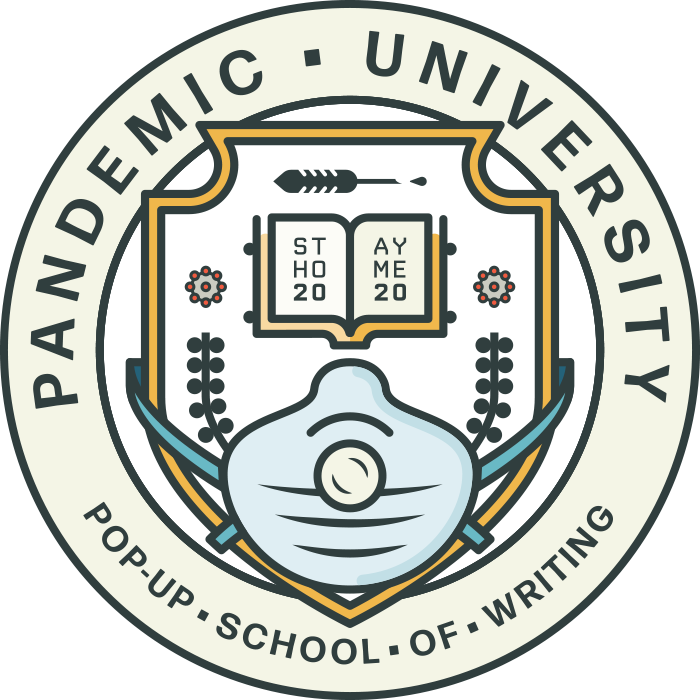
Ayelet Tsabari was only nine when her father died. She rebelled against the Israeli army during her mandatory service and began a life described in The Art of Leaving as “running away from responsibilities and refusing to settle in one place.” This state of near permanent restlessness took her to Canada, New York, Europe, across Southeast Asia, Canada again, and, finally, back to her roots in Tel Aviv.
The book, called a “memoir in essays,” was a finalist for the Hilary Weston Writers’ Trust Prize for Nonfiction and earned spots on Apple Books and Kirkus Review Best Book lists of 2019. Like her short fiction collection, The Best Place on Earth, the memoir focuses on the lives of Mizrahi people—Middle Eastern and North African Jews, who, by will or expulsion, moved to Israel, and so often found the promise of a Jewish homeland to be conditional.
It might sound like a “niche” perspective; there are only about 4.5 million Mizrahi in the world. And yet her stories are as universally appealing as they are deeply intimate.
Ayelet’s talent for turning the personal into something universal makes her the perfect teacher of memoir. Her Jul. 26 class breaks the popular genre into 10 gems of advice to guide writers through finding a theme, confronting their fears, and making art out of their lives. Best of all, Ten Tips For Writing Great Memoir is by donation, with all proceeds going to the Canadian Writers Emergency Relief Fund..
As if Ayelet hasn’t exposed enough of herself, PanU still had a few questions in order to get to know her even better.
Register for 10 Tips for Great Memoir (C$20)Your memoir, The Art of Leaving, is an incredibly personal and intimate look at your life. Did you ever have hesitations about including so much, or did it feel natural to you?
Memoir is the art of curating parts of your life to create a story. It’s not everything that happened to you. I still kept a lot to myself.
At the time of writing it, I didn’t think about exposure. I wrote what I needed to write. And that’s what I advise students. Because thinking about all of this exposure when you’re still writing may paralyze you into not writing at all. Of course, it’s scary. But writing anything is scary. In the end, I didn’t include anything I wouldn’t talk about freely.
You teach creative writing at the University of King’s College, and Tel Aviv University, and the University of Toronto’s School of Continuing Studies. Is there any one lesson you always get across to your students, no matter where they are?
The memoir seminar comprises exactly those lessons! But I’ll share this quote by Hemingway that I love: “The First Draft of Everything is Shit.” And there’s Ann Lamott’s title of her wonderful book, “Bird by Bird.” [Or, put another way, be easy on yourself and put faith in patience. –Editor]
Your workshop is by donation, with all proceeds going to the Writers’ Trust of Canada’s Emergency Relief Fund. Why did you want to fund-raise for WTC?
The Writers’ Trust has supported me and many others over the years, and especially in these tough times. This was an opportunity to give back in a small way.
Memoir is the art of curating parts of your life to create a story. It’s not everything that happened to you. I still kept a lot to myself.
In 2013, you wrote an op-ed for the National Post about the absence of apolitical writing among Israelis, even if the writer wishes their work to remain so.
You compared it to Canadian writers being afforded the chance to write about their lives without having to reflect on the politics of their country, or get scrutinized for not including people of colour in their memoirs. Is it still that way for you today?
I don’t think of myself as apolitical; my writing is absolutely political. And, like I said in that piece, even not writing about the Israeli-Palestinian conflict is political. It was more about the type of content people expect from you and continue to expect from BIPOC writers, LGBTQ writers, disabled writers, and immigrant writers. And yes, I still bump against that all the time. But I care about it less now.
Which books, movies or TV shows are getting you through the pandemic?
I haven’t had a chance to read much lately because I’ve been teaching so much. I love comedies, and enjoyed Love Birds, because I love Issa Rae and Kumail Nanjiani. I also watched the fourth season of Insecure. And now I can’t wait to start watching I May Destroy You by Michaela Coel.
The interview has been edited for clarity and brevity.
Register for 10 Tips for Great Memoir (C$20) Buy Her Books